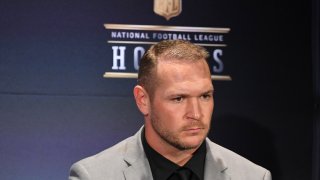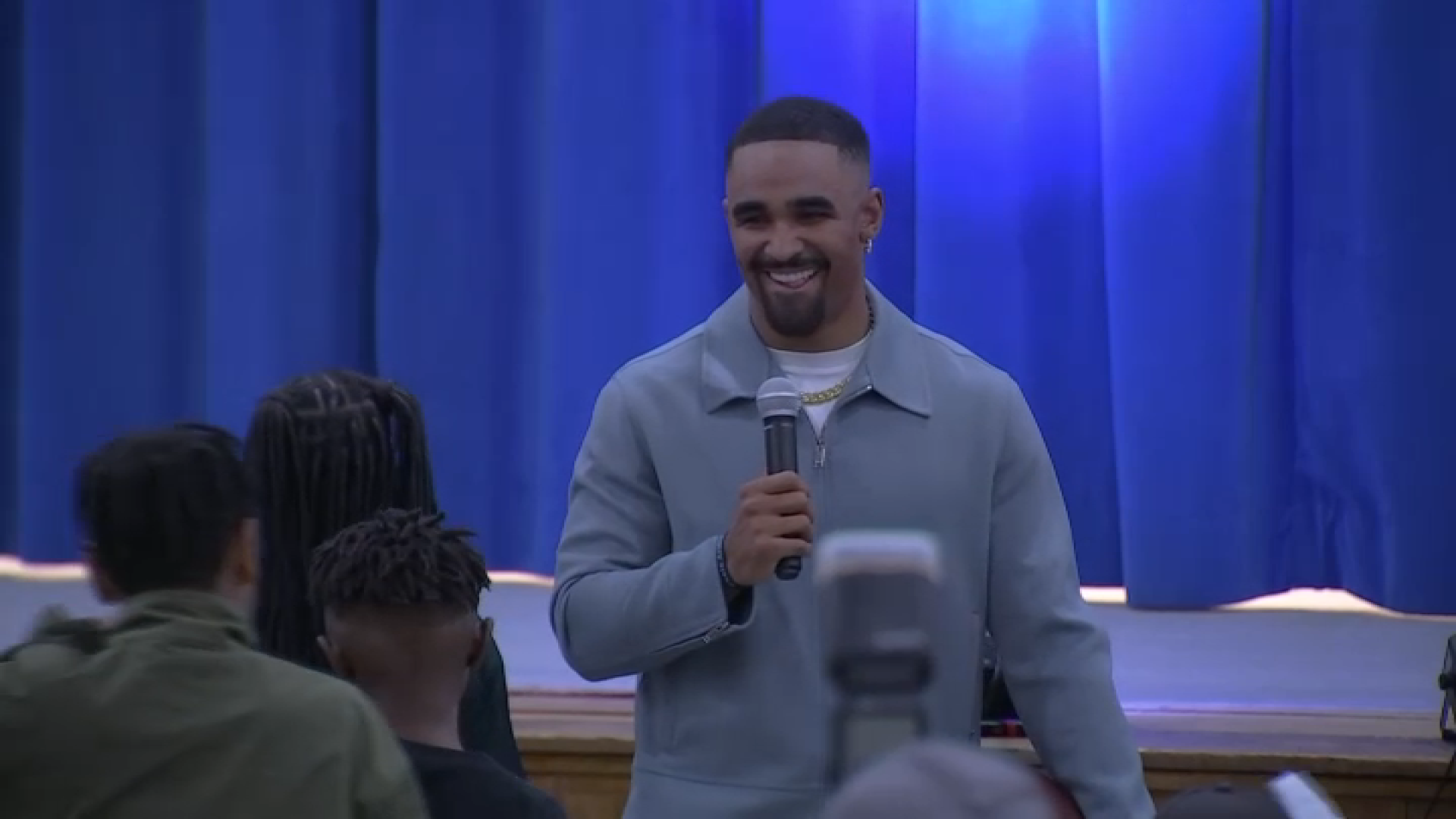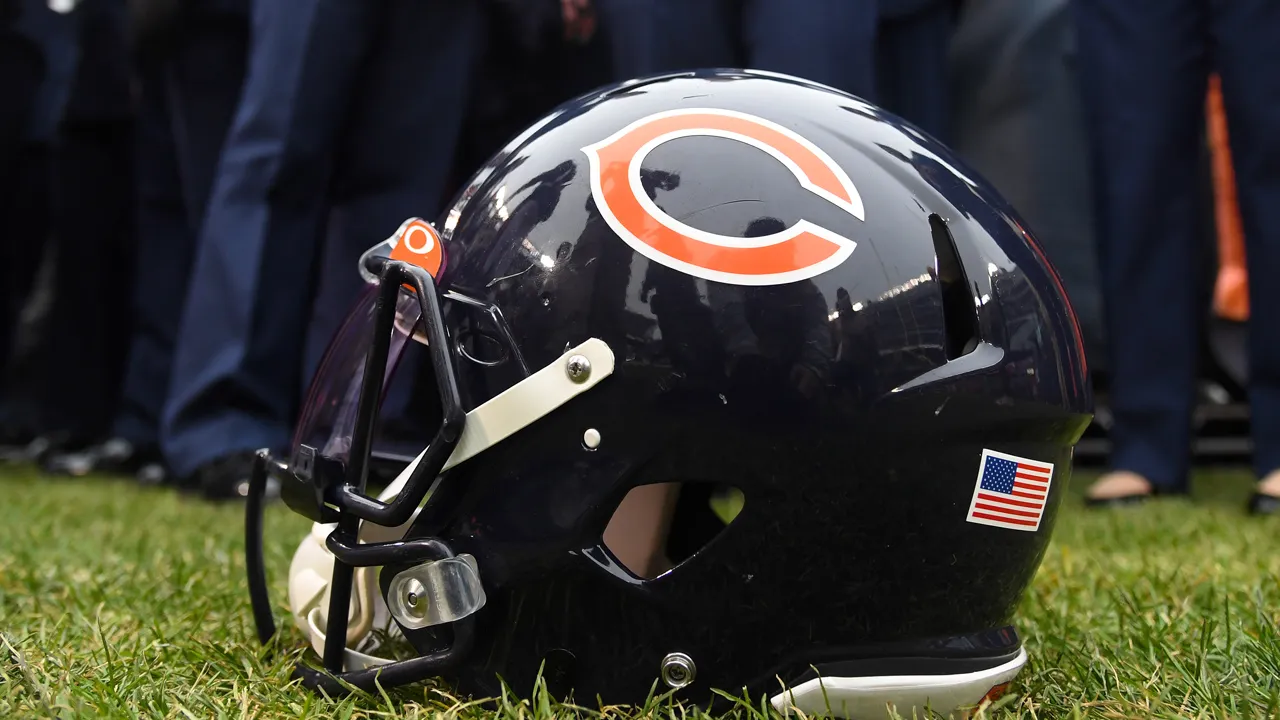
As the country reels from the latest police shooting-- this time Jacob Blake being paralyzed after police shot him in the back seven times-- athletes across basketball, baseball, football and soccer have ramped up their protests. The NBA postponed a full slate of playoff games. MLB, MLS and the WNBA pushed back games as well. Several football teams, including the Bears, canceled practice to have team discussions instead.
All of this has prompted reactions from fans, pundits and former players alike, including Bears Hall of Fame linebacker Brian Urlacher, who shared this message on Instagram Thursday morning.

Stay in the game with the latest updates on your beloved Chicago sports teams! Sign up here for our All Access Daily newsletter.
Because most athletes and many fans have voiced support for the NBA players boycotting playoff games, it’s easy to want to dismiss Urlacher as being on the wrong side of a humanitarian movement. Sure enough, some fans were already calling to “cancel” Urlacher on social media. However, that’s not a productive way to approach a statement like this, especially during a time when our country desperately needs to come together. Instead, let’s use this as a springboard to explain why Urlacher may have missed the point of these protests, and why you can’t compare Brett Favre’s personal tragedy to Wednesday's NBA boycotts.
To start, let's dig in to Favre’s historic performance after his father’s death. Favre took the field, steeled himself and played magnificently, only one day after his father died suddenly of a heart attack while driving. It’s both tragic and traumatic, and nothing should diminish that, or Favre’s inspirational game. But it was a personal tragedy, and his father didn’t die unjustly at the hands of someone else, or a system of oppression. There’s no one to hold accountable for Irvin Favre’s death.
That’s not the case with Jacob Blake’s shooting. Sure, it’s a personal tragedy for Blake’s family, just like it was a personal tragedy for George Floyd’s family, and Breonna Taylor’s family, and Elijah McClain’s family, and Laquan McDonald’s family… But the fact is, those tragedies are a product of a broader issue affecting the entire Black community, as well as other people of color.
Duron Harmon put it best when addressing the media after the Detroit Lions canceled practice to hold a team meeting about the shootings.
NFL
“While some people think that we’re just football players, this league, 67%-- two-thirds of its players-- are African American,” Harmon said. “Jacob Blake could have been anybody’s brother, cousin, uncle, friend. Could have been them. And it wasn’t OK.
“This organization is going to make sure we speak out on it,” Harmon later said during a virtual press availability. “We can’t be silent anymore.”
So, back to the NBA. The players who united to boycott games on Wednesday thought they couldn’t be silent any longer either. They made a stand because people can be held accountable for the long list of Black victims of police shootings.
Several studies have shown that Black people are disproportionately killed by police, compared to their representation in the U.S. population-- with findings ranging from two, to nearly three times more likely. Some of these studies note that Black victims are more likely to die in an encounter with law enforcement, despite the fact that Black victims were unarmed in 5% more cases than white victims. That is just one example, albeit the most fatal example, of white privilege.
It’s white privilege to get a ticket for a simple parking violation, instead of getting tased like Milwaukee Bucks forward Sterling Brown. Brown ended up on the ground with a knee on his neck, a foot on his ankle and guns pointed at him, just for double parking in a handicap spot at a drugstore early one morning. That’s why NBA players are protesting. Because they’ve unfortunately experienced first hand what people of color across the United States have experienced for generations
To be clear, this is not an argument about criminality. This is an argument that all races need to be treated equally by law enforcement. It’s an argument that there’s a problem when Breonna Taylor died after police served a no-knock warrant at her apartment, while Kyle Rittenhouse was able to walk past police after shooting and killing two people in Kenosha, to be arrested the next day without a shot being fired.
Reforms can be made to start undoing centuries of this systemic racism in America. NBA players are now doing what they can to bring about that change.


